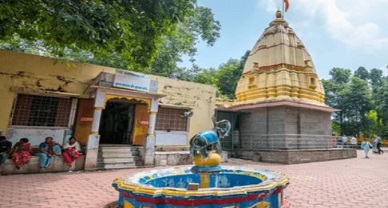Traditional Knowledge in India: A Rich Tapestry of Heritage
Introduction
India, with large and varied cultural environment that has developed over thousands of years, is home to a plenty of traditional knowledge. Traditional knowledge encompasses wide range of fields, that include spirituality, medicine, agriculture and arts. It reflects the distinctive customs and beliefs of local people around the nation. It is essential to distinguish, value and preserve the invaluable legacy of traditional knowledge at a time when globalization threatens to reinstate regional traditions.
Traditional Knowledge
The information, capabilities and customs that local groups and indigenous people have gathered over many generations and that are frequently rooted in their surroundings are referred to as traditional knowledge (TK). Among the practices are folklore, handicrafts, medicine and agriculture. In India, traditional knowledge is an essential component of cultural identity and not just a way of life.
Traditional Medicine
Among India’s most well-known traditional knowledge are its age-old medical systems, including Siddha and Ayurveda. Ayurveda, literally translates to the science of life and has been practiced for more than 5,000 years. It is grounded on striking a balance between the body, the mind and the spirit. It emphasizes the importance of food, herbs and lifestyle modifications for maintaining a good health.
The core values of Ayurveda are found in ancient texts like the Vedas and the Charaka Samhita. They describe herbs, their medicinal properties, recommended treatment protocols, and the overall holistic approach to health. Like Ayurveda, Siddha medicine is also primarily practiced in Tamil Nadu, but there are several elements that are particular to Siddha.
Recently, there is revived interest in these ancient systems both in India and outside. Traditional medicine has a role to play, and WHO has accepted the same, and it has been leading efforts in India through research and development initiatives to promote Ayurveda.
Agricultural Practices
Traditional knowledge systems based on sustainability and biodiversity form the foundation of agricultural practices in India. Indigenous farmers can cultivate many different crops using techniques that are specific to local climates and available soils. Practices such as intercropping, crop rotation and organic fertilization helps to improve soil fertility and reduces threats from pests and diseases.
It is impossible to overstate the importance of traditional seed varieties. Indian farmers have successfully preserved thousands of these seed variants, which have been shown to be resistant to pests and climate change. They play a crucial role in preserving biodiversity and ensuring food security. Because traditional agricultural methods offer sustainable alternatives to industrial agriculture based on chemicals, there is a growing push to revive them.

Cultural Expressions
In addition, traditional knowledge also comprises vibrant traditions of South Asian antiquity, especially the strong artistic traditions of India. Each region has its unique forms of art and craft, ranging from the elaborate motifs on Madhubani paintings to fine handwoven textiles of Varanasi. They have cultural significance and are more than just visuals, they frequently convey tales, customs and beliefs that form the foundation of identity of a community.
Indian crafts encompass an extensive range of abilities, such as woodworking, weaving, ironworking and pottery. Such traditional skills are preserved when artisans pass down their techniques and designs through generations. But since modern manufacturing processes and globalization kicked in, a lot of artisans find it difficult to keep up with their crafts. These traditional arts are not only seen as culture-rooted royalties but are endeavored to be promoted through livelihood aspirations.
Spiritual Practices and Folk Traditions
Holistic traditional knowledge in India Traditional knowledge in India is also closely linked with spirituality and religious practices. The community has its own beliefs and values which can be seen through a lot of rituals, festivals, and ceremonies. For instance, worship of nature like the River Ganges or holy forests shows the indigenous knowledge of ecology and oneness of life.
The traditions of storytelling, dance and music are used to save history and teach moral values. They frequently impart morals about living in unison with the great outdoors, living together and continuing through ordeal. However, many of these traditions are vulnerable to disappearance in urbanizing contexts, making it crucial to document and rejuvenate them.
Challenges to Traditional Knowledge
India has a wealth of traditional knowledge, though it is often beleaguered by a variety of challenges. However, massive globalization and industrialization have caused numerous indigenous practices to disappear because children are moving into big cities for promising opportunities. The homogenization of culture causes challenge that threatens diversity of traditional knowledge and needs to have an innovative solution to preserve such practice.
Furthermore, Intellectual Property Rights (IPRs) issues are a serious challenge to traditional knowledge. A lot of indigenous communities just have their knowledge stolen, without credit or compensation. It is also important to create laws that help these communities profit off of their heritage by protecting this knowledge about natural resources.
Sharing Traditional Knowledge project points out, Indigenous peoples, past generations and the people today hold the key for preserving traditional knowledge methods, therefore it is a collective responsibility but it can easily be passed from generation to generation.
Preserving Traditional Knowledge
Preserving and promoting traditional knowledge requires a collective effort from the government, the local communities, non-governmental organizations (NGOs) and educational institutions. The Indian government has taken several initiatives to acknowledge and safeguard traditional knowledge, such as the Traditional Knowledge Digital Library (TKDL), which seeks to document and protect traditional knowledge of India.
Addressing the need to preserve traditional knowledge is also an important aspect of raising awareness. It can help instill pride in cultural heritage through programs that incorporate traditional practices and teachings. Local initiatives related to traditional crafts, local agriculture, herbal/folk medicine and others as such are driven and minimizing the threat to livelihoods in those local populations while keeping a traditional knowledge system intact.
Conclusion
Indian history of traditional wisdom offers evidence for the wisdom and resilience of fellow humans. A complex quilt, stitched from threads of history, culture, and environment, that embodies the many identities of the country. As we move through the complexities of modern life, we must see traditional knowledge not just as a cultural relic operating in a museum but as a living system that can provide sustainable answers to some of our most pressing challenges. We can help create a future where the knowledge of the past informs the innovations of the future.
Author: Neha Vivek A, in case of any queries please contact/write back to us at support@ipandlegalfilings.com or IP & Legal Filing.
References
- https://www.lexology.com/library/detail.aspx?g=88e00ba9-d3c8-43dc-a6af-f76d62bd0aed
- https://www.wipo.int/wipo_magazine/en/2011/03/article_0002.html


